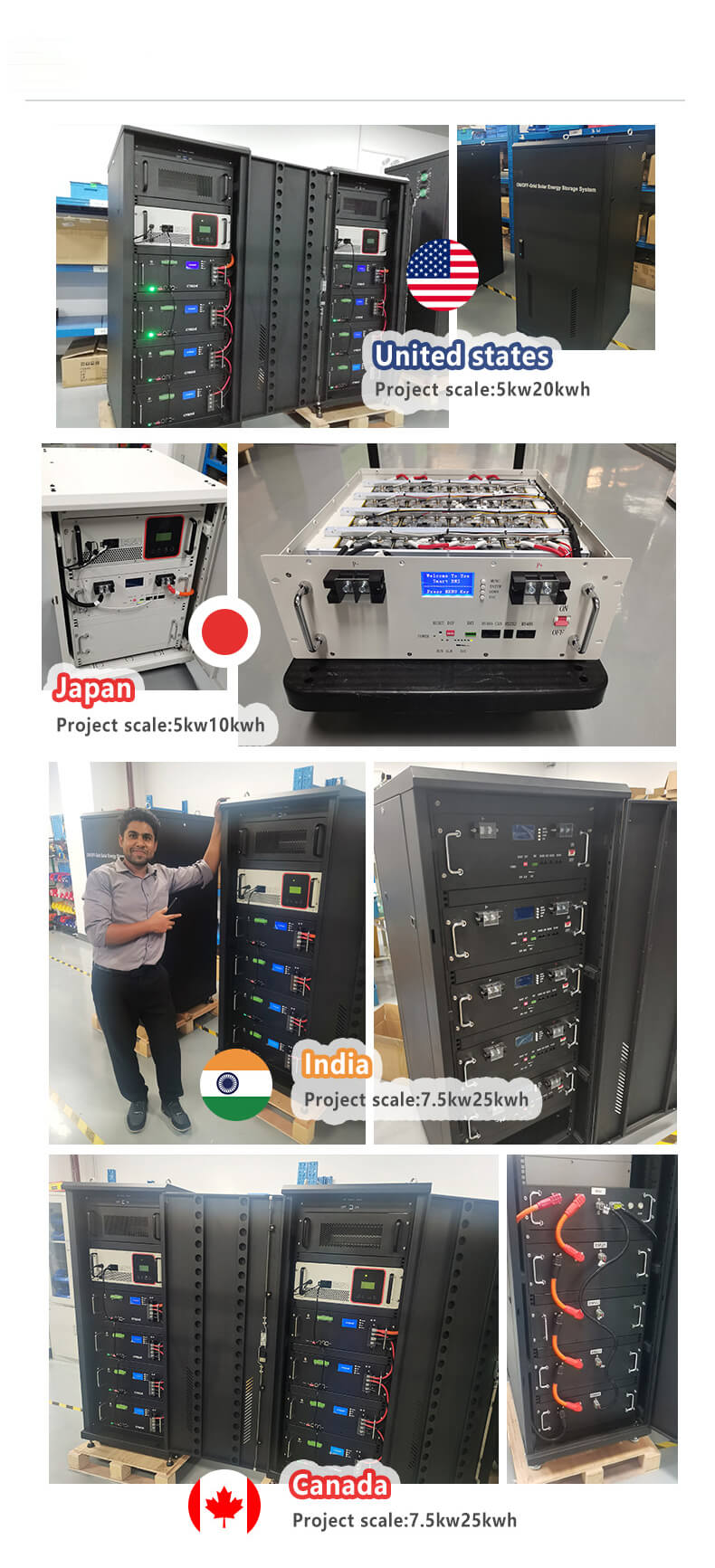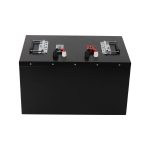LiFePO4-batterijen are taking “charge” of the battery world. But what exactly does “LiFePO4” mean? What makes these batteries better than other types?
Read on for the answer to these questions and more.
Wat zijn LiFePO4-batterijen?
LiFePO4 batteries are a type of lithium battery built from lithium iron phosphate. Other batteries in the lithium category include:
Lithium Cobalt Oxide (LiCoO22)
Lithium Nickel Manganese Cobalt Oxide (LiNiMnCoO2)
Lithium Titanate (LTO)
Lithium Manganese Oxide (LiMn2O4)
Lithium Nickel Cobalt Aluminum Oxide (LiNiCoAlO2)
You might remember some of these elements from chemistry class. That’s where you spent hours memorizing the periodic table (or, staring at it on the teacher’s wall). That’s where you performed experiments (or, stared at your crush while pretending to pay attention to the experiments).
Of course, every now and then a student adores experiments and ends up becoming a chemist. And it was chemists who discovered the best lithium combinations for batteries. Long story short, that’s how the LiFePO4 battery was born. (In 1996, by the University of Texas, to be exact). LiFePO4 is now known as the safest, most stable and most reliable lithium battery.
LiFePO4 vs. Lithium Ion Batteries
Now that we know what LiFePO4 batteries are, let’s discuss what makes LiFePO4 better than lithium ion and other lithium batteries.
The LiFePO4 battery isn’t great for wearable devices like watches. Because they have a lower energy density compared to other lithium-ion batteries. That said, for things like solar energy systems, RVs, golf carts, bass boats, and electric motorcycles, it’s the best by far. Why?
Well, for one, the cycle life of a LiFePO4 battery is over 4x that of other lithium ion batteries.
It’s also the safest lithium battery type on the market, safer than lithiom ion and other battery types.
And last but not least, LiFePO4 batteries can not only reach 3,000-5,000 cycles or more… They can reach 100% depth of discharge (DOD). Why does that matter? Because that means, with LiFePO4 (unlike other batteries) you don’t have to worry about over discharging your battery. Also, you can use it for a longer period of time as a result. In fact, you can use a quality LiFePO4 battery for many years longer than other battery types. It’s rated to last about 5,000 cycles. That’s roughly 10 years. So the average cost over time is much better. That’s how LiFePO4 batteries stack up vs lithium ion.
Here’s why LiFePO4 batteries are better than not just lithium ion, but other battery types in general:
Veilige, stabiele chemie
Lithium battery safety is important. The newsworthy “exploding” lithium-ion laptop batteries have made that clear. One of the most important advantages LiFePO4 has over other battery types is safety.
Overall, LifePO4 batteries have the safest lithium chemistry. Because lithium iron phosphate has better thermal and structural stability. This is something lead acid and most other battery types don’t have at the level LiFePO4 does. LiFePO4 is incombustible and can withstand high temperatures without decomposing. It’s not prone to thermal runaway, and will keep cool at room temperature.
Als u een LiFePO4-accu blootstelt aan extreme temperaturen of gevaarlijke situaties (zoals kortsluiting of een botsing), zal deze geen brand veroorzaken of exploderen. Voor degenen die dagelijks deep-cycle LiFePO4-accu's gebruiken in een camper, boot, scooter of laadbak, is dit een geruststellend feit.
Milieuveiligheid
LiFePO4 batteries are already a boon to our planet because they’re rechargeable. But their eco-friendliness doesn’t stop there. Unlike lead acid and nickel oxide lithium batteries, they are non-toxic and won’t leak. You can recycle them as well. But you won’t need to do that often, since they last 5000 cycles. That means you can recharge them (at least) 5,000 times. In comparison, lead acid batteries last only 300-400 cycles.
Uitstekende efficiëntie en prestaties
U wilt een veilige, niet-giftige accu. Maar u wilt ook een accu die goed presteert. Deze statistieken bewijzen dat LiFePO4 dat allemaal biedt, en meer:
Laadrendement: een LiFePO4-accu is binnen 2 uur of minder volledig opgeladen.
Zelfontladingspercentage bij niet-gebruik: slechts 2% per maand. (Vergeleken met 30% voor loodzuuraccu's).
De looptijd is langer dan die van loodzuuraccu's/andere lithium-accu's.
Consistente stroom: hetzelfde ampèrage, zelfs wanneer de batterij minder dan 50% meegaat.
Geen onderhoud nodig.
Klein en lichtgewicht
Er zijn veel factoren die bijdragen aan de verbetering van LiFePO4-accu's. Over gewicht gesproken: het zijn echte lichtgewichten. Ze zijn zelfs bijna 50% lichter dan lithium-mangaanoxide-accu's. Ze wegen tot 70% lichter dan loodzuuraccu's.
When you use your LiFePO4 battery in a vehicle, this translates to less gas usage, and more maneuverability. They are also compact, freeing up space on your scooter, boat, RV, or industrial application.
LiFePO4-batterijen versus niet-lithiumbatterijen
Als het gaat om LiFePO4 versus lithium-ion, is LiFePO4 de duidelijke winnaar. Maar hoe verhouden LiFePO4-accu's zich tot andere oplaadbare accu's op de markt?
Loodzuuraccu's
Loodaccu's zijn in eerste instantie misschien een koopje, maar op de lange termijn zijn ze duurder. Dat komt doordat ze constant onderhoud nodig hebben en je ze vaker moet vervangen. Een LiFePO4-accu gaat 2 tot 4 keer langer mee, zonder dat er onderhoud nodig is.
Gelbatterijen
Net als LiFePO4-accu's hoeven gelaccu's niet vaak opgeladen te worden. Ze verliezen ook geen lading tijdens opslag. Waarin verschillen gel- en LiFePO4-accu's? Een belangrijke factor is het laadproces. Gelaccu's laden traag op. Bovendien moet je ze loskoppelen wanneer ze 100% opgeladen zijn om te voorkomen dat ze kapotgaan.
AGM-accu's
AGM batteries will do plenty of damage to your wallet, and are at high risk for becoming damaged themselves if you drain them past 50% capacity. Maintaining them can be difficult as well. LiFePO4 Ionic lithium batteries can be discharged completely with no risk of damage.
Een LiFePO4-accu voor elke toepassing
LiFePO4-technologie heeft zijn nut bewezen voor een breed scala aan toepassingen. Hier zijn er een paar:
Fishing boats and kayaks: Less charging time and longer runtime means more time out on the water. Less weight allows for easy maneuvering and a speed boost during that high-stakes fishing competition.
Mopeds and mobility scooters: No dead weight to slow you down. Charge to less than full capacity for impromptu trips without damaging your battery.
Solar setups: Haul lightweight LiFePO4 batteries wherever life takes you (even if it’s up a mountain and far from the grid) and harness the power of the sun.
Commercial use: These batteries are the safest, toughest lithium batteries out there. So they’re great for industrial applications like floor machines, liftgates, and more.
Nog veel meer: Daarnaast voeden lithium-ijzerfosfaatbatterijen nog veel meer dingen, zoals zaklampen, elektronische sigaretten, radioapparatuur, noodverlichting en nog veel meer.
LiFePO4 Quick Answers
Is LiFePO4 the same as lithium ion?
Not at all! The LiFePO4 battery has a cycle life of over 4x that of lithium ion polymer batteries.
Can LiFePO4 catch fire?
LiFePO4 batteries are the safest of the lithium batteries, because they will not catch fire, and won’t even overheat. Even if you puncture the battery it will not catch fire. This is a massive upgrade over other lithium batteries, which can overheat and catch fire.
Is LiFePO4 better than lithium ion?
The LiFePO4 battery has the edge over lithium ion, both in terms of cycle life (it lasts 4-5x longer), and safety. This is a key advantage because lithium ion batteries can overheat and even catch fire, while LiFePO4 does not.
Why is LiFePO4 so expensive?
LiFePO4 batteries are usually more expensive on the front end, but cheaper long term because they last so long. They cost more up front because the materials used to build them are more expensive. But people still choose them over other batteries. Why? Because LiFePO4 has many advantages over other batteries. For example, they’re much lighter than lead acid and many other battery types. They’re also much safer, they last longer, and require no maintenence.
Is LiFePO4 a lipo?
No. Lifepo4 has a number of distinct advantages over Lipo, and while both are lithium chemistries, they are not the same.
What can I use LiFePO4 Batteries for?
You can use LiFePO4 batteries for the same things you’d use lead acid, AGM or other traditional batteries for. For example, you can use them to power bass boats and other marine toys. Or RVs. Or solar setups, mobility scooters, and much more.
Is LiFePO4 more dangerous than AGM or lead acid?
Nope. It’s actually quite a bit safer. And for a number of reasons, including the fact that LiFePO4 batteries don’t leak toxic fumes. And they don’t spill sulfuric acid like many other batteries (like lead acid.) And like we mentioned earlier, they don’t overheat or catch fire.
Can I leave my LiFePO4 battery on the charger?
If your LiFePO4 batteries have a battery management system, it will prevent your battery from overcharging. Our Ionic batteries all have built-in battery management systems.
What is the life expectancy of LiFePO4 batteries?
Life expectancy is one of the biggest perks, if not the biggest perk of LiFePO4. Our lithium batteries are rated to last around 5,000 cycles. That is, 10 years or so (and often more), depending on usage of course. Even after those 5,000 cycles, our LiFePO4 batteries can still function at 70% capacity. And better still, you can discharge past 80% without a single issue. (Lead acid batteries tend to gas out when discharged past 50%.)


